Politics
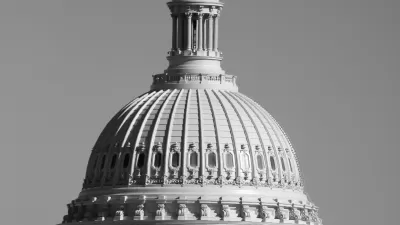
Good Planning Under Bad Leadership
Planners must sometimes work under bad leadership. Here are suggestions for responsive planning in challenging political environments.
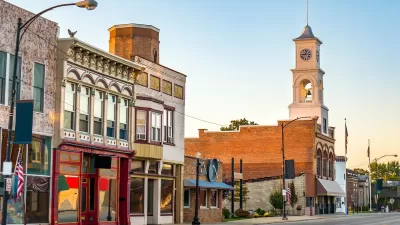
Progressive Planning in Ideologically Conservative Communities
Planners must work in diverse political environments including conservative jurisdictions that are skeptical of new issues and perspectives. Here are ways to reconcile conflicting goals.

Valuing Ounces of Prevention
Planning decisions often involve trade-offs between short-term prevention costs and larger future savings and benefits. Planners can help communities determine what best reflects their priorities.
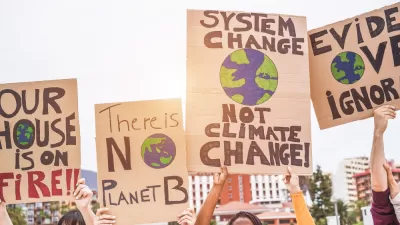
Report: 100 Trends Urban Planners Need to Know About
APA’s third annual Trend Report for Urban Planners is out and offers a comprehensive look at potential drivers of change that could impact communities and the work of planners for decades to come.
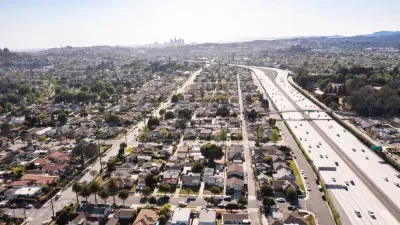
‘Luxury Beliefs’ and Urban Planning
Conservative pundits are using the term “luxury beliefs” as a means of criticizing progressives. But can the concept be applied to urban planning? And can it be applied in a nonpartisan way?
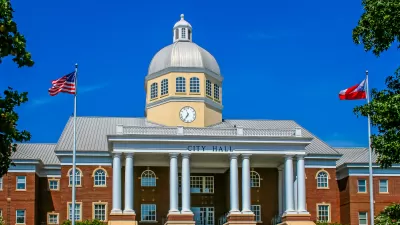
The Good, the Bad, and Urban Planning Politics
Urban planning and politics are two sides of the same coin.
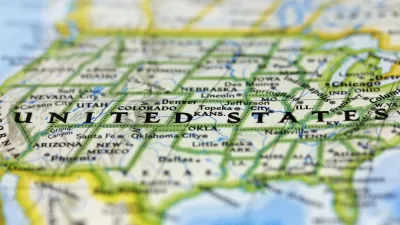
Study: Older States Tend to Have Worse Finances
A report suggests that the older a state is, the more likely it is that special interests have entrenched themselves, negatively impacting the public purse.
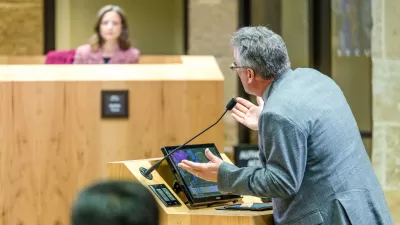
The Truth About Creating Policy: It Can't Be Evidence-Based
Research in cognitive sciences is dictating that we can no longer rely on the presentation of scientific facts when building policy.
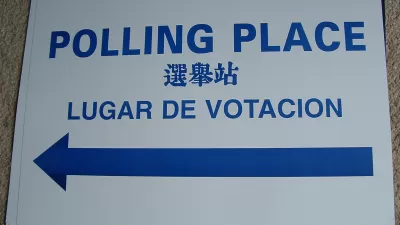
Density is Destiny: Voting Records Mirror Proximity to Neighbors
Urban densities tend to encourage more liberal, tolerant values. Living among diverse neighbors can reduce fear and resentment, as everyday interactions break down stereotypes and misconceptions of ‘the other.’
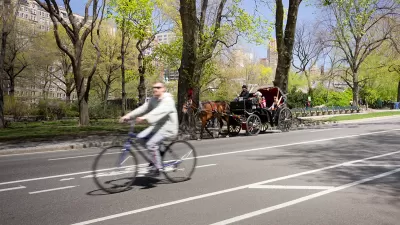
Making Long-Term Planning and Democratic Politics Work Together
To the potential surprise of many planners in the United States, strategic planning and politics can work together to produce significant policy outcomes in democratically governed cities.
Are freeway overpasses curtailing public discourse?
Freeway overpasses instead of town squares are now often selected as the preferred public space to promote a non-commercial point of view, but such messaging does little to enhance public discourse, writes planner and urbanist Howard Blackson.
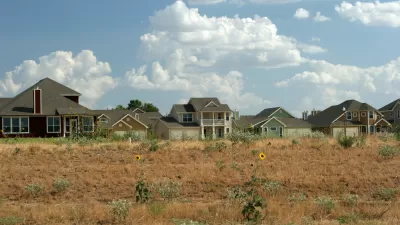
Op-Ed: The Texas Miracle Won't Last
As economic migration continues to swell its population, Texas has been heralded by some as a new California. But Johnny Sanphillippo argues that the Lone Star State's boom just isn't sustainable.
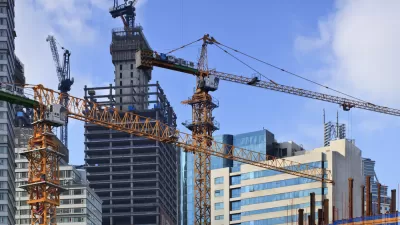
U.S. Opposition to New Development
New data from the 2015 Saint Index shows what projects provoke the most opposition in the United States when proposed "In your community."
Highlights from CNU 23 Dallas
Having just wrapped up a great CNU in Dallas, April 29 through May 2, a collection of urbanists share some of the ideas that resonated the most.
U.K. Coalition Government Split Over Garden Cities Report Publication
The leader of the Liberal Democrats, half of the UK's coalition government, accuses the Conservatives of withholding a report that identifies sites for two new towns in 'safe' Conservative regions.
Tea Parties and the Planning of America
I recently had the pleasure of sitting on a panel convened by the Lincoln Instititute of Land Policy to discuss the Tea Party and its effects on local planning (a topic I've discussed earlier on this blog). At one point, the moderator asked if there were any successful techniques that planners could use to effectively deal with Tea Party activists. This was an intriguing question, but also one that I thought was a bit odd. Controversy and conflict are not new to planning; they are built into the very process of American planning because of its inherent openness and inclusiveness.
Lessons on Urban Redevelopment from Colombia's Divergent Design Stories
The cities of Bogotá and Medellín have made dramatic transformations over the last ten years, driven in large part by their influential mayors. But while one continues to soar, the other is in crisis, reports Justin McGuirk
The Politics of the Public Christmas Tree
Leon Neyfakh of The Boston Globe examines the unexpectedly cohesive political roots of the controversial civic symbol.
Partisanship Stalls Infrastructure Investment, Says Blumenauer
Congressional support for transportation and infrastructure projects has traditionally been bipartisan. In an interview, Rep. Earl Blumenauer of Oregon discusses how political tantrums in Congress may handicap the US in the long run.
Digging (in) Detroit
Detroit is the darling of the media.
Pagination
Urban Design for Planners 1: Software Tools
This six-course series explores essential urban design concepts using open source software and equips planners with the tools they need to participate fully in the urban design process.
Planning for Universal Design
Learn the tools for implementing Universal Design in planning regulations.
Heyer Gruel & Associates PA
Ada County Highway District
Institute for Housing and Urban Development Studies (IHS)
City of Grandview
Harvard GSD Executive Education
Toledo-Lucas County Plan Commissions
Salt Lake City
NYU Wagner Graduate School of Public Service


































